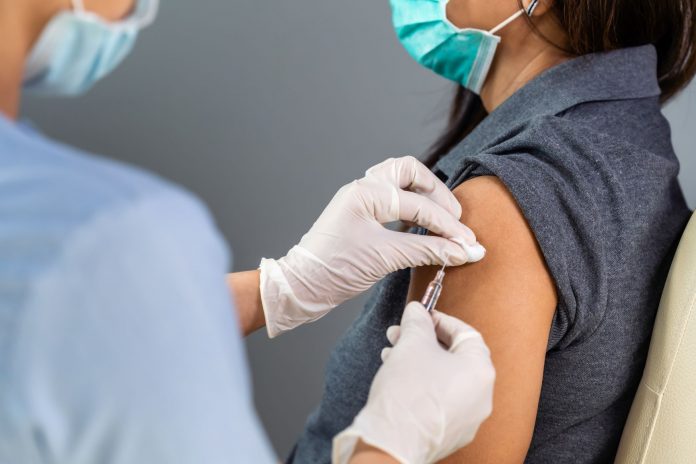Final checks are taking place on the deliveries of the coronavirus vaccine developed by American drugmaker Pfizer and Germany’s BioNTech before its rollout to hospitals across the UK.
Around 800,000 doses of the vaccine, in super-cold containers, are expected to be delivered and in place for the start of the immunisation program on Tuesday.
It will be the country’s biggest ever and is being closely watched all around the world.
Health Secretary Matt Hancock has reportedly dubbed Tuesday as “V-Day” – a nod to British triumphs in World War II.
“Despite the huge complexities, hospitals will kickstart the first phase of the largest scale vaccination campaign in our country’s history from Tuesday,” said Professor Stephen Powis, NHS England’s national medical director.
“The first tranche of vaccine deliveries will be landing at hospitals by Monday in readiness.”
Last week the UK became the first country to authorise the Pfizer-BioNtech vaccine for emergency use.
In trials, the vaccine was shown to have around 95% efficacy.
Vaccinations will be administered starting on Tuesday at around 50 hospital hubs in England. Scotland, Wales and Northern Ireland will also begin their vaccination rollouts the same day.
Governments and health agencies around the world will be monitoring the British vaccination programme, which will take months, to note its successes and failures and adjust their own plans accordingly.
The United States hopes to start vaccinations later this month.
British regulatory authorities are also examining data on the vaccines from American biotechnology company Moderna and AstraZeneca-Oxford University.
Russia on Saturday began vaccinating thousands of doctors, teachers and others at dozens of centres in Moscow with its Russian-made Sputnik V vaccine, which was approved over the summer after being tested in only a few dozen people.
The excitement in Britain, which has Europe’s highest virus-related death toll at more than 61,000, was palpable.
“This coming week will be an historic moment as we begin vaccination against COVID-19,” said Hancock.
Patients aged 80 and above, who are already attending hospitals as outpatients, and those being discharged after a stay in the hospital will be among the first to receive the jab.
Buckingham Palace refused to comment on speculation that Queen Elizabeth II, 94, and her 99-year-old husband, Prince Philip, will soon be vaccinated and then make it public, a move that could reassure anyone nervous about getting a vaccination.
“Our goal is totally to protect every member of the population, Her Majesty, of course, as well,” Dr June Raine, chief executive of Britain’s Medicines and Healthcare products Regulatory Agency, which authorised the vaccine, told the BBC.
The UK has secured 40 million doses of the Pfizer vaccine, which can cover 20 million people.
Since the British government will only immunise people over 16, around 55 million people in the UK will be eligible.
In total, Britain has procured 357 million doses of seven vaccine candidates, including 100 million of the much cheaper Oxford vaccine, which has a lower efficacy rate than the Pfizer or Moderna vaccines.





